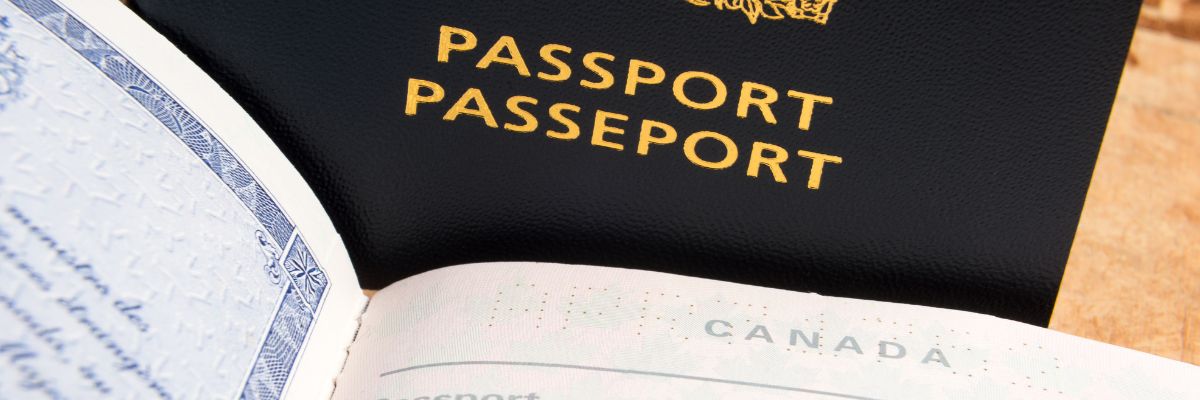CABA Newsletter – December 2023
Welcome to the Winter 2023 issue of the Canadian American Bar Association’s newsletter. In this and future issues, we will highlight CABA’s recent activities, as well as priorities set by the CABA executive, in consultation with CABA’s advisory board and its membership at large. In this issue, we focus in particular on CABA’s recent efforts with respect to the transmission of Canadian citizenship abroad.
CABA’s Cross-Border Initiatives
As a cross-border legal association, CABA’s leadership, advisory board and membership have a unique interest in furthering the rights of Canadians and Americans who choose to live and work abroad. Trends such as state-centered populism and trade protectionism, coupled with natural and man-made cross-border risks, have resulted in unique and novel tensions in the international community in which CABA’s membership operates.
These unique and growing challenges continue to be an important area of focus for CABA’s research and advocacy initiatives, with the transmission of citizenship abroad being a lynchpin issue speaking to the ability of expats to retain their connections to multiple countries at once.
CABA’s efforts in this area are a continuation of its past cross-border initiatives. Over the course of 2017 and 2018, CABA participated in public consultation processes relating to the renegotiation of what was to become the United States Mexico Canada Agreement, focused on harmonizing cross-border legal regimes and facilitating cross-border legal practice.
In 2018, CABA made submissions to the United States Congress in favor of the retention of per-country caps on employment-based immigrant visas, which could have had a disproportionate impact on the free movement of Canadian legal practitioners across the border.
And in January 2019, in Frank v. Canada (Attorney General), a majority of the Supreme Court of Canada found that the Canadian Charter of Rights and Freedoms protects Canadian expats from being disenfranchised on the basis of their non-residency in Canada, a case in which CABA participated as an intervener, making both written and oral submissions before the Court in support of what became the majority position.
Related links:
https://canambar.com/news-updates/caba-testifies-before-the-ustr-about-nafta-renegotiation/
https://canambar.com/news-updates/supreme-court-canada-vindicates-voting-rights-expats/
Cross-Border Spotlight: The First General Limitation on the Transmission of Canadian Citizenship
Canadian citizenship can be passed on through various means, including being born to Canadian parents, being born in Canada and becoming a naturalized citizen of Canada. What may be less well understood is that in 2009, Parliament passed legislation amending Canada’s Citizenship Act, which limited the transmission of citizenship by descent, with the effect that a Canadian parent is now only entitled to pass on their citizenship to children born abroad if the parent themselves became a citizen by birth inside Canada or by naturalization.
History and Academic Study
Purportedly implemented in the interest of fighting the phenomenon of “Canadians of convenience” who lack a true attachment to Canada, this enactment is known as the “first-generation limitation” (FGL), and represents a significant retrenchment of Canadian citizenship rights. In addition to being more restrictive than previous Canadian rules, which generally permitted the transmission of citizenship abroad so long as individuals applied to retain their citizenship prior to their 28th birthday, it is also more limited than laws in many comparable jurisdictions.
In an effort to raise awareness on this important issue, CABA provided funding and support to University of Ottawa, Faculty of Law Professor Michael Pal and Luka Ryder-Bunting on an in-depth study – Citizenship and the First-Generation Limitation – published in the Dalhousie Law Journal. After outlining the operation of current Canadian rules around citizenship and international comparisons, Professor Pal and Mr. Ryder-Bunting explore alternatives to the FGL and conclude that a number of them would be preferable to both the status quo or the pre-2009 rules.
CABA views the publication of this paper as an important contribution to cross-border scholarship, as well as to the rights of Canadians, including many of its members, living abroad.
Related links:
https://ssrn.com/abstract=4394198
Legislative and Judicial Developments
The legal community has not stood still in the face of the challenges posed by the FGL. The relevant provisions have recently been challenged in Canadian court as violating various guarantees of Canada’s Charter, including by discriminating on the basis of national origin and sex, curtailing mobility rights and other grounds.
The constitutional challenge – Bjorkquist et al. v. AG Canada – commenced in 2021 and a decision remains pending before the Ontario Superior Court of Justice, with the potential for the decision being appealed to the Ontario Court of Appeal once issued.
Related links:
A Senate bill, S-245, also seeks to address some of the imperfections of the Citizenship Act, with a particular focus on “Lost Canadians” – Canadians who, because of where or when they were born, are caught up in provisions of the Act that may lead them to lose citizenship or become stateless, in particular relating to the prior requirement to re-apply for citizenship prior to their 28th birthday. While the 2009 FGL amendments changed these rules, it did not provide a corrective to anyone who had already lost citizenship.
S-245, which is at the report stage in the House of Commons, was devised to permit certain of these Lost Canadians to regain citizenship, but also presented a broader opportunity to revisit the 2009 changes to the Citizenship Act and address their negative effects. Indeed, the House of Commons Standing on Citizenship and Immigration recently included provisions into S-245 granting citizenship to children born abroad after April 2009 to a Canadian parent born abroad in the second generation if that parent has a substantial connection to Canada, which may provide at least a partial legislative solution to the FGL problem. CABA will continue to closely track these important developments.
Related links:
https://www.parl.ca/LegisInfo/en/bill/44-1/s-245
Looking Forward and How You Can Help
CABA is eager to continue its advocacy and involvement in the areas of cross-border rule of law and expat citizenship rights. In the near term, its leadership expects to submit opinion pieces for consideration in major Canadian newspapers once the Bjorkquist decision is handed down. Looking forward, CABA also intends to explore organizing a virtual legal/policy seminar on the FGL in cooperation with the University of Ottawa, Faculty of Law in 2024.
In support of the projects outlined in this newsletter, CABA would welcome inquiries from Canadian law firms and other practitioners with expertise in constitutional and other issues particularly affecting expats who would be willing to represent it on a pro bono basis in current or future proceedings relating to the FGL and other issues of interest to the cross-border expat community, including, potentially, in any appeal relating to Bjorkquist.
In furtherance of its advocacy efforts, CABA would also welcome testimonies from its membership and other affected readers of this newsletter as to how they have been impacted by the FGL, recent developments on voting rights and other cross-border issues. Our goal is to build a robust set of personal accounts that could be deployed to illustrate the lived experiences of the North American expat community, which may include future op-ed pieces in major Canadian and U.S. newspapers, submissions to legislative bodies considering further reforms to citizenship rights or other initiatives. Requests to remain anonymous will be honored.
In either case, please reach out to president@canambar.com.
Thank you for your interest in CABA.
The CABA Executive
Ivo Entchev President
Julian Wright Vice-President
Mark Semotiuk Secretary Treasurer
Julie Lanz Director of Policy and Advocacy
Joanna Langille Director of Academic Outreach
Arielle Wasserman Director of Events and CLE Programming
Kristin Ali Canada Representative
Shashi Dholandas Director of Communications




























